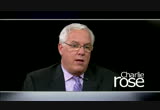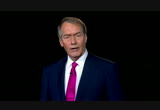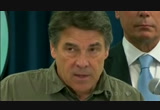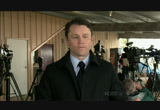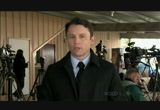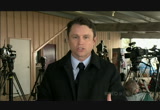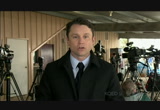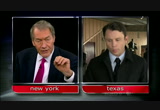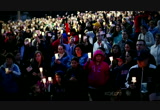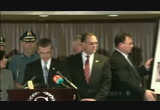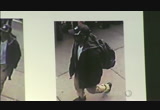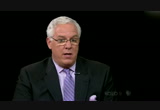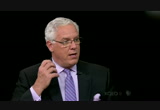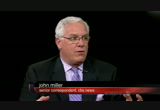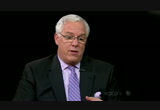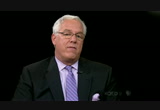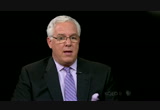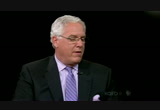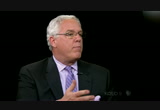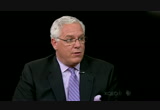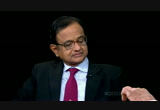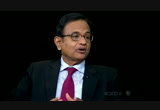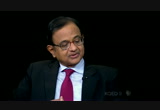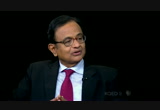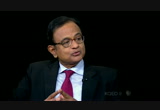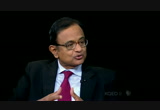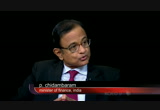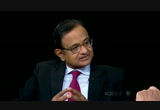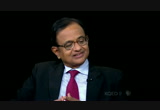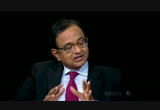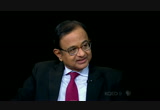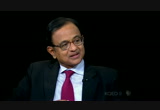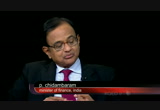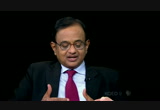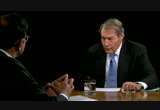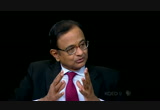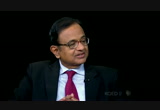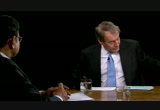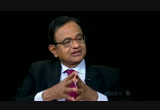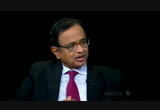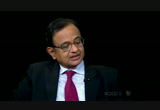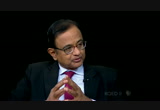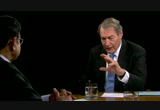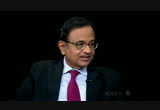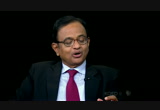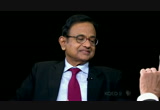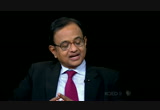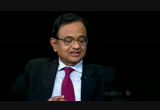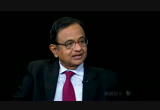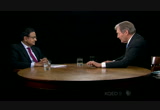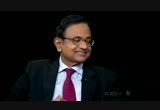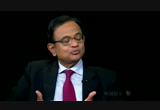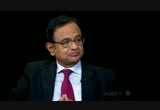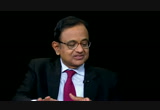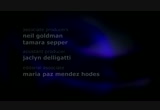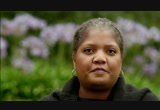tv Charlie Rose PBS April 19, 2013 12:00pm-1:01pm PDT
12:00 pm
>> rose: welcome to the programment we begin this evening with a giant explosion in west texas last night. >> and i spoke to people last night and in the early morning hours that were a milend and two away and didn't notice anything until they saw the huge mushroom cloud that youve seen in thvideo and the pictures that we have been showing endlessly here for the past 18 hours or so. it shook some of these people to their core. and they didn't really know what it was but they knew that it was something serious. >> rose: we continue this evening with the continuing investigation into the tragedy at the boston marathon. we're joined by john miller. >> this is the ultimate crowd sourcing. you have world attention focused on this and a world where you don't have to be watching tv to see that photo go by. we live in the world where it's on everybody's smart phone. anybody can pull it up. and they are counting on this level of crowd sourcing,
12:01 pm
tens of millions of people, including in other countries, to-- somebody out there knows them. >> rose: we close this evening with a conversation t ob ecomy with india's minister of finance. >> you see, we require massive investment to build our country. the bulk of it comes from domestic savings but we still require at a margin, foreign investment, for that brings technology. that brings invasion, that brings better management skills and management management practices. it opens new markets for us. it introduces us to new products. that is the advantage of getting fdi. >> the texas explosion,s bots to-- boston investigation and the global economy when we continue. >> rose: funding for charlie rose was provided by the following:.
12:02 pm
>> rose: additional funding provided by these funders. and by bloomberg provider of multimedia news and information services worldwide. captioning sponsored by rose communications from our studios in new york city, this is charlie rose. . >> rose: we begin this evening with the explosion at a fertilizer plant in west texas which is near
12:03 pm
waco. here is the explosion which took place last night. at last count five people have died and more than 160 injured. it produced ground motion equivalent to that of a magnitude 2.1 earthquake. the mayor of west said it felt as if nuclear bomb dded. buildings within a five block rad yux-- radius were damaged. the search for survivors is ongoing. investigators are trying to determine the exact cause of an explosion. a small fire is believed to have spread to fertilizer tanks. governor perry held a press conference earlier and here is what he said. >> also spoke to the local officials to make sure they have the support and assistance they need from the state. to that end i am declaring the county a disaster. we'll request an emergency declaration from the president.
12:04 pm
i also want to commend the hard work put in again by chief kidd and his team at the texas division of emergency management. they quickly responded to this disaster. it is very important to stress that at this pnt much of thfo we have is still very preliminary. and more information is coming in all the time. >> rose: jason allen joins me now from best west texas, a reporter for cbs dallas, fort worth. i'm pleased to have him here to help us understand what has happened. good afternoon. >> hi, charlie. glad to be here with you. >> rose: what is the latest that you have about this in terms of casualties, in terms of open questions, especially what caused it? >> we heard a lot of numbers thrown around early in this as far as casualties. anywhere from 5 to 15 was often the number being thrown around. officials right now have really backed off of that because they have said that they're remaining right now in a search and recovery mode. they think it's still possible that there could
12:05 pm
sslehere i the rubble that may need rescue, even with the damage to the wide extent that you saw it with the cold weather and the rain that moved in overnight. they think it's possible they may still pull survivors out so they really backed off on a number right now although we do know from talking to some firefighters, some friends and family that there are likely a couple of emfs and firefighters that were killed. as far as cause right now, no one is talking anything about cause at this point. they're really still focused on the recovery effort that is going on still at this hour. >> rose: so no decision as to whether this was a criminal act or an industrial accident. >> they're not really ruling anything out at this t, charlie there are no signs that point to this bein crinn but that is how ty're approaching this from the start. just in case there was something involved, someone who may have started a fire or someone who may have let something intentionally go
12:06 pm
lax at the plant. again there's nothing that points to that. but they are treating that as a possibility just in case they don't want to leave anything out. >> rose: is there risk to further incidents? >> all indications that we're getting at this point is there is no enhanced increased risk. the fires that were smoldering well into the early morning hours have really died down. there was a lot of help from the weather system that moved in very, very heavy rains here in the early morning hours, that tamped the fire down. there was initially concern about some toxic fumes and smoke that wereri the plant. that also is not as much of a concern now although there is some monitoring of the air. there is some higher particularate levels around the plant but it isn't something they are worried about as much as in the early morning hours of the explosion. >> rose: when you talk to people there, how do they 4v-p>> it is interesting because
12:07 pm
we have spoken to people that live 20, 30, 40 miles away who heard it and felt it. and i spoke to people last night and in the early morning hours that were a mile or two away and didn't notice anything until they saw the huge mushroom cloud that you have seen in the video and the pictures that we have been showing endlessly here for the past 18 hours or so. it shook some of these thidn't really knows bu tneheyw that it was something serious. i spoke to some people who live probably within a few hundred yards of this plant. and they say every thing shook, their walls blew in. their windows blew in. their roofs, their ceilings came down. and they charlie -- even have a way then to escape the areament because even their cars, their vehicles that were sitting out if the driveway, the force of the blast, the concussion of the air was so forceful it dented the sides of their cars it blew the windows inment they couldn't even have driven out of the area if
12:08 pm
they wanted to. that is how forceful this was even to people who live several hundred yards away. >> and the number of casualties so far, not deaths but casualties in terms of people who were injured? >> we are at as yard-- upwards of 160. that is the last count that we had. so extremely serious. and that number is possible, it could rise, depending on who they find f they find anyone as they continue to go door-to-door and search the damaged areas. >> let me just close with this in making sure i understand it because are you there and on the scene and reporting. they don't know what caused the explosion. they do know, i understand that there was a small fire and that it is believed to have spread to the tanks. >> there was. and that was the initial callout. i spoke to some people at the volunteer fire department who got that initial call about 7:30 in the evening that there was a
12:09 pm
fire at the plant. several volunteer firefighters headed over there from the station. some of them came from their houses or jobs and went straight there and they start ready from what we understand to work on that fire. it was about 20 to 25 minutes later that there was the explosion. again, officials here are not saying right now what they think caused that explosion f it was actions that were on scene, if it was something else at the plant that went wrong. but there was that initial fire that burned for about 20, 25 minutes before the explosion. >> jason, thank you for taking time to do this with us. i appreciate it enormously. >> glad to help, thanks, charlie. bac>>in a moment. stay with us. we continue this evening with our coverage of the boston marathon bombings. earlier today president obama consoled the nation at an interfaith service if boston's cathedral of the holy cross. >> our prayers are with the injured. so many wounded, some gravely.
12:10 pm
from their beds, some are surely watching us gather here today. and if you are, know this, as you begin this long journey of recovery, your city is with you. your commonwealth is with you. your country is with you. we will all be with you as you learn to stand and walk and yes, run again, of that i have no doubt. you will again. (applause) >> rose: a little after 5 p.m. this evening at a press conference the fbi released images andillance video of two potential suspects. the picture showed two young men carrying backpacks near the sites of the explosion. fbi special agent richard deslauriers asked for the public's help to identify the suspects. >> after a detailed analysis of photo video and other evidence, we are releasing photos of these two suspects, identified as suspect one and suspect two. they appeared to be associated. suspect one is wearing a
12:11 pm
dark hat. suspect two is wearing a white hat. suspect two set down a backpack at the site of the second explosion just in front of the forum restaurant. we strongly encourage those who were at the forum restaurant who have not contacted us yet to do so. as you can see from one of the-- from one of the images suspects one and two appear to be walking together through the marathon crowd in on boylston street in the direction of the finish line. that image was captured as they walked on boylston in the vicinity of the intersection with gloucester street. as you can see the quality of the photos is quite good, but we will continue to work on developing additional images to improve their identification value. >> rose: joining me now is john miller. he is senior correspondent for cbs news and a former fbi official. let me start with this question. we just saw the video of the fbi press conference and what they have. what do they have? >> what they have is
12:12 pm
something that's almost invaluable in a case that starts as a mystery. they've got two faces. they've got a set of pictures. and they're not the kind of pictures, charlie, that if you looked at those you would say if i passethatd guy in the street five seconds from now i would recognize him. but they really are the kind of pictures that you would say, if you knew that person, you would recognize them. if you knew both of them, you with recognize them together. >> rose: are they countsing on the fact that someone will see them and call in. >> this is the ultimate crowd sourcing. you have world attention focused on this. and you have a world where you don't have to be watching tv to see that photo go by. i mean we live in the world where it's on everybody's smart phone. anybody can pull it up. and they are counting on this level of crowd sourcing, tens of millions of people, including in other countries, to-- somebody out there knows them. i mean they don't live in a vacuum and they're expecting this is going to work. >>hey have names. >> so they do have names. but that's where if gets
12:13 pm
complicated, dharlie. because they have possible names on both of these guys. but that is through the other part of the investigation, and some cell phone tracking. and they didn't want to go out with those names because they don't want to confuse the issue. if those names actually wrong to the phones but aren't the names of the people who belong to those faces, it just clouds it. they're asking a simple question. who knows these guys. what name do you know them by, and where are they now. >> rose: and do they have any more information as to how they might have set off the explosion? >> well, they have a lot of information about suspect number two in the white baseball cap turned backyards. because they have videotape where see h carry the package to the location where that explosion goes off. he puts that package down. he makes a cellular telephone call. he walked out of frame. while he's making that call, the first bomb at the finish line goes off. when he walks out of frame a short time later, this
12:14 pm
second device goes off. so in some sense they almost have the crime committed in the act on tape, which is what every prosecutor dreams of when they go to trial. >> rose: right, right. >> and it's quite something am now we don't see that piece of tape. but that's because they spent a lot of time yesterday saying not which are the pictures that are most dramatic or most sinter. but which are the picture that offer the best look at these guys where somebody might say hey, i know him. >> rose: at this time they know names. do they have a facebook page? >> no. and not for these two guys. in fact, they came to, you know, basically a deadend where they said we've got a couple of names. we can't associate-- we can't associate, we can't imagine those names to these faces, necessarily, not to our satisfaction. we're going public to see if somebody can close that loop for us. >> rose: would they-- at what point would they have
12:15 pm
closed borders and put people on a no flight list? >> well, i done know this from inside the investigation, but from my experience working at the fbi, logical steps would be f they had names, they would send those names to the border and put them on the no-fly list so if one of those names was moving through one of those places, it would be flagged and stopped. at least they would get to interview that person. if it turns out that name belongs to the faces on those pictures, even better. if not they're going to want to know about who was the person who owned that phone too. >> what questions are you asking? >> i'm asking, okay, so now we know what they look like. but who are they really? and what's behind this? is this al qaeda. these are people who have followed the web sites, read inspire magazine, learned the bomb instructions on the internet. are they converts. so that's one set of questions. or the other set is are
12:16 pm
these regular, pur homegrown extremists? are these americans who have some issue like a timothy mcveigh or eric robert rudolph. we think these things might make sense. and then when you learn what they are really about, they often don't. when eric robert rudolph set off the bomb at centennial park in the olympics back in the mid '90s, you kind of sat him down later and said, well, what was that about. he said well, the olympics, it was representative of the new world order. you know, soon the black helicopter is going to come and the u.n. is going to take over all the countries. and you're like, that was it,? really? so you don't know what they are operating on. and that is a great curiosity to me. because when you see this kind of carnage, this kind of sensect then you hear later how the person behind it or people behind it make sense of it, oftentimes you are scratching your head saying that was it am. >> rose: but based on your experience f you have these
12:17 pm
number of things going for new law enforcement, do you usually get your man rather quickly? >> it depends what your man has done. and what his network is. so let's talk about things that will make that more likely than less likely. if these guys, you know, have a community, if they are from the united states, if they are in college and there's fellow students who know them. if they are from boston and people right there recognize them this could wrap up tonight. on the other hand f these guys came in from another country, simple as down from canada, or across from europe, if their social network isn't here f they left two days ago. >> rose: right. >> that makes it harder. it's its difference between a shazad case a times square truck bomber who is caught within 72 hours, say, and an eric robert rudolph case, the olympic bomber who it took years to find, even after we knew exactly who he was and what he looked like. >> rose: but he was in mainly a rural area.
12:18 pm
>> he was hiding in a national forest, and you know, they scanned that-- they scanned that with night vision, motion detector. i mean a lot of deer were chased in the dark up there. but they didn't get him until he came down the hill, you know, to find food. >> rose: let me tie this up, a piece i'm not sure about. so they had a telephone connection that might have given them the names that they are operating under? >> right, so they're looking at this guy on the phone. they get to the data from the cell phone towers with and providers and they say what phones within the area that would have hit these towers were operating at that moment that this video is time stamped on. and they get the universal of those numbers. and that gives them a collection of names am then they say well this guy is 66 years old and you know, lives over here. this is a female over here. we've talked to her. and they boil that down to a handful of names. and they think, well, we don't know if this is that guy but we know that phone belongs to one of these two
12:19 pm
or three people. >> rose: yeah.is tre something u can do in terms o facial recognition? >> goodueis may be -- so now they take the tapes. and they have a series of really good options which is one, you use facial recognition tools and you cause that to search, to crawl against all your other images. and it will give you possibles. he might be here. he might be here. he might be there. 85% matches. but i think what's more important is this the crowd sourcing 202. because now you say to the public, you've seen our suspects. and you have your iphone and your cameras and your smartphone. and all of the pictures you took that day. go back through them. is he standing in the background of one of your photos? do you have him carrying the backpack. in a perfect world you get one of those magic moments where somebody says i have both of these guys and they're getting out of a car and here is another clue. >> rose: yeah. >> so that's what they're going to do. and this is stuff they've
12:20 pm
never done before. if you go to fbi.gov the web site, there's a whole section where they say if you have pictures you can e-mail stills to this address. if you have video, you want to download you can, you know, load file 1 here, file 2 there, file 3 there until you've got it all ingested. they're doing all of this virtually and remotely. and he they say if you can't figure that out tell us where you are, we will come pick it up. >> rose: i assume the fbi also has people who are trying to get their head inside their head and say what would they do. >> yes. >> rose: an would they leave immediately and get in a car an drive somewhere and hideaway in a safe house. or would they get in a car and drive away as far as they could possibly get. >> or would they be right there in boston. and any of those are possible. >> rose: in plain sight as they say. >> and any of those are possibilities in this case. >> rose: fascinating, thank you. >> thanks for having me. >> rose: my great colleague at cbs this morning, john miller. back in a moment. stay with us.
12:21 pm
india's minister of finance is with us. he served in that role twice before when he and i last spoke on this program in 2005 the indian economy was growing at 9%. that since slowed to 5% last year. he has said that india and china will be -- china will continue to be drivers of global growth. he is leer forth imf world bank spring meetings this week. he is also promoting foreign investment in india. i'm pleased to have him back at this table. welcome bands back. >> thank you. >> rose: give me your assessment. this is a broad, big question, of the global economy and put it into the context, emerging nations, and it's hard to think of india and china that way but they are often put in that place. asia, europe, latin america, and the united states. where is the global economy today? >> there are no clear signs that the recovery has begun.
12:22 pm
over all countries. for example, the global economy actually slowed from 2011 to 2012. and although there are estimates that growth will increase by a few percent, a few decimal points in 2013 that's not very clear to me. advanced industrial economies have slowed even further. advanced industrial economies average growth is one half the average for the world. now look at bricks. its emerging large economies. this year-- . >> rose: brazil, india, russia, china. >> brazil is likely to grow at 1.5%. >> rose: brazil. >> yes, south africa 2.6%. russia, 3.7%, china at 7.5, they say.
12:23 pm
and india will be somewhe in between. >> rose: 5 a6. >> no, we predt 6.1 to 6.7. imf today said it will be 6.2. so there are only a few countries which are growing at more than 5%. and more than 6% i think there is only 2 or 3. so growth is sluggish. there's no clear sign of a swift or a rapid recovery. 2013 will be a difficult year. but hopefully the year will end on a brighter note. >> rose: what will cause it to end on a brighter note? >> well, the u.s. economy surely is looking up. and if europe is able to fix its problems, and japan can heat the economy a little more, then i think the world economy will end on a brighter note. >> rose: but those are big ifs for britain-- for europe and japan. >> they are.
12:24 pm
but i think japan will do what it promises to do. they are now spending. they want to reflate the economy a bit. it's likely to happen. europe, of course, must fix its problems. >> rose: easier said than done. how would you fix their problems? >> i'm glad i'm not doing that. it's for the european countries to get together. get their act together. imf has promised to help. the ecb has a particular way of handling it. it's for them to fix their problems. but they have to, i suppose, accept the fact they are no longer drivers of world growth. they have high per-capita incomes. she they have declining populations, aging populations, all these have to be factored in before they find-- . >> rose: and the door fastest growing economies will be china and japan? i mean china and india.
12:25 pm
>> undoubtedly. undoubtedly. >> rose: and why is that? >> because, we have a large population. >> rose: right. >> we have resources. and once we get into that growth mode, if you compound every year at 6% or 7%, your economy becomes a very large economy. >> rose: is it also because definitionu are creating increased domestic demand because of the size of your population and the fact that your economy is making people, it's rising their level of economy. >> that's true. in india's case there is an additional advantage. the demographic dividend. by 2020 india will be the youngest nation in the world, with a median age of 29. >> rose: so we say that india and china are going to be the fastest growing economies in the world, as they have been recently. we secondly says that's because of their population and increing consumer
12:26 pm
demand arising from that population so they have a market for more and more products. >> they're not dependent on an external mar receipt. >> rose: they c have an exdemand model but it's the popution and demographic .or india that makes the young, you young. >> well, it is a pop lition that is not literate, not killed -- skilled, not trained, it becomes a drag am but if are you able to educate them, skill them, train them, it becomes an asset. and in india's case, as more people move out of agriculture, which is a low skill, low-paying job, into services sector manufacturing sector, they don't have to be clever. they simply have to move into better jobs that will increase productivity. it will also contribute more to the gdp. so the migration of population from agriculture, rural toanerban
12:27 pm
services and manufacturing will give a big boost to the gdp growth. >> rose: and so what are the things that worry you because of your responsibility in india about the optimism that ought to be in india? for example, you have huge needs for infrastructure. and people will argue that unless you do that, you cannot be a great, global, political and economic power. >> i agree. our needs for infrastructure have been estimated at a trillion dollars in a period of five years. 47% of that will come from the private sector. rovernment and the public sect, r which we ve e resources. see our savings rate i the worst year was 30%. in the best year was 36% of gdp. pick any number between 30
12:28 pm
and 36. if our incremental capital output ragio, what economists call icar is about 4, a potential growth rate is about 8%. and if we continue to grow at 8% for say seven years or 8 years or 10 years like china did at 10% for over 10 years, it compounds. and we become a giant economy. >> does it also mean, though, that what you hope, earlier, i mean first, the reason we have such a high savings rate, india and china, is because there is no social safetyt. >> that is one of the reasons. the otr reason is tradition. traditionally indians are savers. even the poor save. >> rose: but why do they save? >> it's a cultural trait. >> rose: but you hope it will be reduced, don't you, because you want them to be good consumers, good
12:29 pm
spenders. >> the saving rate may decline in the medium term. but i don't see a rapid decline in the short term. incomes will rise. people will spend. but i think they will also save. that is a trait of being in a joint family among hindus, among the poor also they save. >> rose: there is also this. a country as large as india or china that's changing rapidly faces all kinds of social tension that could rip at the heart of the fabric of a society. >> they have managed tensions for 3, 4,000 years. these tensions will -- from time to time. but i think we can manage tensions. >> rose: you're talking about india. >> in the case of india we have been a plural society for nearly 2,000 years.
12:30 pm
christianity came to india 2000 years ago. islam came to india many centuries ago. i think we learn to manage tensions. we know to manage tensions and these tensions will surface but manage them. we are not a society in which social tensions are a new phenomenon. >> rose: china. >> china is more how many on how many on guess, a dom national culture, some pro rinse have's which are different, the tensions are in the provinces which have different cultural and religious characteristics. they have to learn to manage those tensions. they are finding it difficult in one or two provinces. they are finding it difficult. but i hope they will find a way to accommodate the
12:31 pm
concerns of these different provinces. >> rose: now put into this consideration the united states. f books called-- came out talking with great flourish about the decline of america. >> uh-huh. >> rose: that has subsided. it almost seems like there's a reconsideration of america's future. >> i have not subscribed ever to the theory that america will decline. america's great strength is its ability to attract talent from all over the world. it's a country built on talented immigrants, hungry immigrants, people with fire in the belly. that's its greatest strength. the second great strength of america is its universities. nowhere in the world do we have such universities. >> rose: 18 of the top 20 universities in the world
12:32 pm
are here. >> universities which generate, which produce such fine scholars. because from all over the world the best minds come here to teach, to do research and to learn. no other university can boast of such talent. >> rose: and people without care about these kinds of things, are hopeful that they will change the immigration policies so that they are not an impediment to world-class people coming to the unit states, getting a first rate education and then not be allowed to stay. >> well, i can't comment on domestic policy of the united states. bu w unforte if you don't recognize what immigration has done to your country. >> most people do, i think. but see, it's also important to recognize not just what immigration has done, but what it was that made the united states a magnet for
12:33 pm
immigration. it was education. but it was also a sense that this was a place where you had a chance, regardless of where you were born and regardless of the circumstances, correct? >> and that it was the freest society known to man. >> rose: and part of what are you doing here now, which is also important in this context is seeking investment in india. >> yes. >> roshat aryou looking for? >> you see, weequire massive investment to build our country. the bulk of it comes from domestic savings. but we still require at a margin foreign investment, so that brings technology. that brings innovation. that brings better management skills and management practices. it opens new markets for us. it introduces us to new products.
12:34 pm
that is the advantage of getting fdi, which is why-- . >> rose: foreign direct investment. >> which is why we seek foreign direct investment. that's one part. the other part is there are savings all over the world. so we're trying to match your neeest d th our need for investment. >> rose: yet at the same time you restricthe opportunities for vestment, dow not? for example, you know, i think of the kinds of businesses you allow in. i mean you just recently allowed supermarkets to come to india. and i'm not sure about what their circumstances of their coming that are still restricted. >> i'm thinking of wal-mart, obviously. >> yeah, you're right. i think the right way to look at it is we're not restricting. we're opening up in a gradual manner. what are we in 1991. what are we today in 2013. in the space of 22 yd practical%
12:35 pm
of india's economy. there are still some areas which are closed or w are restricd but they will t habut sen ened up a so large, all of manufacturing. >> rose: right. >> steel, power, roads, airport airports, seaports, all this is open. therefore there is a huge opportunity for investors to come toindia. >> rose: do you insist as some governments do on it being a joint venture with the government? >> no, not at all. in most areas we allow 100 percent fdi. and can choose a spot now, a private partner, if he wishes to choose a private partner. in fact, we don't encourage him to have a joint venture with the government. >> rose: but do you insist on a joint venture with an indian company. >> no. >> rose: so there are no restrictions. if you want to invest, if you want to bring your
12:36 pm
business to india, it's pretty much open and unrestrained? >> in most areas it's 100% fdi. in some areas there are caps. >> right. >> supposedly there's a catch 74% in telecom. the remaining 26% need not be a partner. it can be widely distributed to millions of -- >> but the 74% be what? >> fdi. >> fdi. in other words, foreign direct investment not they can invest in what is in india but they can't come in and -- >> they can bring in 74% of the capital. the foreign investor n 74% of the company. where the cap 174. but in many areas the cap is a hundred. can own the whole company, foreign investor can own the whole company. >> rose: this argument has been made about india. and i think, i don't want-- i'm reluctance to give credit but i think it
12:37 pm
pite have been jim o'neill of goldman saks saying that they don't govern enough. that the politics have to get better. does that ring true to you at all? >> do you know he what he might have said. >> it is true of india but let me add it is true of every country. we can't have better governance. i don't think you should generalize. there are many statesin india where there is good 2k3w06 earnance. the central government generally provides good governance but there are weaknesses. we need to identify those weaknesses and rectify them. how can anyone say that we have reached the acme of governance. obviously governance can improve. we need to learn, for example, from the japanese or the chinese how to execute a project on time without a cost overrun. e: right.
12:38 pm
>> if there is one thing that i would like to learn is how do execute a large project without a cost overrun or a time overrun. >> rose: so why do you have cost overruns or time overruns? >> because of, we, we tolerate inefficiencies. we don't punish people enough. we d't ld people accountable. it generally is a very tolerant. well, tolerance is good in every other area, i think, in executing a pject one has to be a little intolerant holding people accountable to what they prompts. >> rose: is that in the culture? >> it's partly cultural but i don't think it's-- you should blame culture for that. it is just a way of doing things, holding people accountable. >> so here you have two things. one, your recognition and the economy had a big thing which i have somewhere, which can, get-- on the one thing, from the one hand you have india wanting to be a great global power, as
12:39 pm
anyone would if they had the resources that india has. >> on the other hand, you have this huge impediment, the lack of infrastructure. over here you have the great desire to have investment. >> uh-huh. >> i mean could those things meet? in other words, an investment into the creation of an infrastructure which would be beneficial and productive and rewarding for everybody? >> in fact that is the meeting point. if we continue to invest in intra-- infrastructure we will become a great economic power sooner. >> so who determines whether you invest in infrastructure? >> government policies. government incentives. tax incentives. that will attract investment and channel investment into areas where investment is required. >> is that package already on the table? >> it is. it is. we have a good tax policy for investment in infrastructure. we give tax breaks, in fact,
12:40 pm
infrastructure, lending is easier. lending is cheaper. there are tax holidays for investment in infrastructure. which is why money is going into infrastructure. the point that we are making now is that if infrastructure that will make a country's economy very strong. we need roads. we need ports. we need seaports. we need more steal making. we need more mining. these are the critical areas in which investment must go. >> is corruption a big problem? >> it is a problemment but no more than in most other countries. wherever i go, i open the newspaper and i find there are charges of corruptio against the government of the day. i admit that, it is a problem. but it's not as big a problem as it is made out to be. to say that everyone is corrupt is i think an outrage us charge. we are tightening our laws.
12:41 pm
we're having an ombudsman. we have this extraordinary instrument called public interest litigation which any citizen can file in the higher courts including the supreme court, exposing corruption. and above all, we have one of the most independent, fiercely independent media in the world which every day is exposing quote, unquote, corruption of one kind or another. >> how much of that media is no the english media has a significant influence because it reaches decision makers and upon makers. but in terms of volume or coverage, the language media is much bigger. >> what is the impact of the fact that india has the second largest muslim pop lakes in the world. >> we are proud of it. we are proud of the fact that we are a plural society and that for centuries, hindus and muslims, hindus and christians have lived
12:42 pm
peacefully with each other. even today in most parts of india, hindus and muslims, hindus and christians live peacefully. >> what makes news is those pockets where there is tension, there is conflict. what does notake news is huneeds or thousands of habitations where they live peacefully. >> when you look at this idea of being a great global power and in the geo political dimension what does india have to do beyond the economics? >> india must position itself as a force for peace. we have no extra territorial ambitions. we have no imperial designs. we must position ourselves as a force for peace and stability in the asian region. and i think we can do that. >> rose: how? and what does that mean? >> by being helpful to our neighbors who are smaller
12:43 pm
and poorer. by trade and investment with all the countries of asia, especially east asia and southeast asia. >> rose: but china is your biggest trading partner. >> and by looking upon china not as a rival or as an enemy, but as another rising power. and two, rising powers working together for the peace of the region and for the peace of the world. >> rose: people who sit around and think about geo political issues, people like henry kissinger and-- think about them. they always talk about the united states having a pacific presence. and sometimes they talk about the united states having a special relationship with india because of the, you know, because of the power, the economic and political of china. >> well, i've heard that too,
12:44 pm
that india will be the power that balances china. >> yes. >> that's an interesting argument. but i don't think india will ever join any camp. india naturally belongs to a fraternity of countries that believe in democracy, freedom of speech and expression, open society. so there's a natural alliance there. but that doesn't mean it will become a political alliance against any other country. and why assume that china will not become more and more democratics years go by. in fac, as china's economy builds up its per capita increases and people become more prosperous, they will demand more freedom, not less. they will demand more liberty, not less. their institutions will become more democratic it may not take the root which say the u.s. to india may take a different route. but eventually, i don't
12:45 pm
think we need to rule out that china also will become a democratic country. >> you have an interest in afghanistan. >> we have a nonmilitary interest in afghanistan. we have committed a billion dollars to the reconstruction of afghanistan. we are building afghanistan's parliament. we're building roads. we're building hospitals. but we've not sent a single soldier to afghanistan. >> but it still scares the pakistanies to death. >> yeah. imaginar'sfes as i said we have not sent singled soldier. >> they look at it and see your presence growing in afghanistan and view that as their own fear of influence and so they have -- >> we have a tiny. >> rose: they hedge all their bets about the future because of that. >> we have a tiny link which is the border between india and afghanistan. something like 140 kilometers or so. but afghanistan is really not our immediate neighbor.
12:46 pm
it's our neighbor's neighbor. so we recognize that pakistan has a more than usual interest in afghanistan. but that's for pakistan to find a way in which it can evolve or forge a workingship. >> rose: is kashmir one of those things that will never be solved? >> it can be solve. in fact i'm confi didn't it will be solved one day once pakistan has a truly democratically elected government. >> rose: and then there is iran. >> yes. >> rose: the united states, as you well know, would like for to you do more with respect to getting iran not to pursue nuclear weaponry. and they believe you don't do enough because you are dependent on buying iranian oil and it's a commercial relationship that restricts you from doing the right thing.
12:47 pm
>> both are wrong on facts. india has publicly stated that it does not support iran becoming a nuclear power. >> rose: everybody says it that. russia says that. >> we buy-- . >> rose: china says that. >> and it is differently. >> we buy less oil from iran than we did some years ago. >> because you found other ours. >> because we have other sources and we have some sources of our own oil. but please remember iran and india have a relationship goes back many years. they have been contacts between india and iran, over centurie should regaran ad ir our enemy or as hostile country. there's no reason for us to do so. just because the u.s. regards iran as a hostile force there is no reason for us to share that view.
12:48 pm
blue if iran attempts to make a nuclear weapon, we are on record saying that we don't approve of that. the way to go about it is through its international atomic energy agency to per sway iran to give up any nuclear ambition. >> but first of all the we do not believe-- including the president say we do not believe they have made a decision to build a nuclear weapon but they're doing everythiosbl to put themselve in the position to make that decision act on it. >> well, i think you are going by information given by your government which is your right. but the u.s. also said that iraq had weapons of mass destruction. it turned out to be completely wrong. >> then do you believe that they do not have, that they're not trying to build
12:49 pm
up their capacity to in a short period of time have a nuclear weapon? you do not believe as an important government official, one of the most important in india, you're here to say i do not believe that they are trying to build up their centrifuges so that they can. >> iran says that it has every right like every otr country to use nuclear power for peaceful purposes. >> rose: there's a difference in what kind of uranium you need for peaceful purposes and military purposes. >> the question is are the enriching uranium which will allow them to build a nuclear weapon. >> rose: right. >> all the evidence points that they are quite far away from doing that. >> rose: is that what you think the iaea believes?
12:50 pm
>> the iaea has not said anything to the contrary. i may be wrong. the hard evidence is on the table, surely the world will rally around to say iran should not build a nuclear weapon. india's position is we cannot afford another country in that region to builnuclr weapon. this will have an effect on other countries. other countries will want to have nuclear weapons. the whole area will get nuclearized and that is bad for world peace. we have clearly told iran that we do not support iran's efforts, if any, to build a nuclear weapon. maybe they are trying. but at the moment, there is no evidence to say that they are building a nuclear weapon. >> rose: i know you have future appointments but i have two last questions. number one, do you believe that india should be a signatore to the nuclear-nonproliferation treaty. >> not the present one which we believe is discriminatory, and we have given reasons for that. gnd ory an belie
12:51 pm
because the existing treaty is discriminal that another-- discriminatory. >> yes. >> a nondiscriminatory treaty-- . >> rose: so thea of having a nonprolife a.ea i >> of course. >> rose: but you know why people think you don't sign it is because are you building nuclear weapons and that is what you did in the first place. >> but we have. that's not a secret. we have built a nuclear weapon. but we have also said we will never use it. we will never no first use a nuclear weapon. and we would work with all the countries of the world towards nuclear disarmament. in fact t is india which proposed the most comprehensive nuclear disarmament plan to the united nations. >> rose: finally this. why is it that romantics like me find something, i didn't know whether it's the mystical, mist civil or whatever it is that makes
12:52 pm
india so compelling? >> i wish there were more romantics, mr. rose. india is one of the oldest civilizations in the world. and through these five, 6,000 years it has seen many crises it has survived many trials and triblations. yet it is still a young, vital, energetic country. it also happens to have a very large number of poor people. >> rose: yes. >> and i think there's nothing more exciting this is what keeps me in politics, nore excit than doing what you can do to lifts these poor people out of poverty. there's nothing more satisfying if that can be done in our lifetime. i'm not sure i can do it in my lifetime but it's probably can be done in my children's lifetime.
12:53 pm
to lift 34un-- 300, 400 million people out of poverty and say this is the end of poverty as we have known it for centuries is a most satisfying task. >> rose: well,. >> why i a absolute-- salute china is despite all the other things about china, they have been able to lift all but a small proportion of their country out of poverty. >> rose: they have lifted more people out of poverty than any other country in the history of civilization. >> absolutely. >> rose: by changing their economic model. >> and therefore i salute china for that and i think we can do it in india in our own way, wedded to democracy, wedded to parliamentary institution, freedom of speech, freedom of expression. i think we can lift all our people out of poverty in about 20 to 30 years. and that is the is dream which keeps people like me going. >> rose: it is a noble end of politics to be able to
12:54 pm
achieve that. and you would hope that politicians around the world would come to that point of view. that is politics can make a difference in the lives of people. and when it does that it is a noble mission-- noble mission and that should be pursuedith more vigor and more energy than any other. rose: its world has the resources. >> rose: and global health and poverty. >> the world has the resources. the world has the technology. the world has the call ent. yet we don't see our sell of-- ourselves as people inhabiting one planet. and in one planet, you cannot have one half or one-third of the people in abject poverty while the rest of the people on that same planet, their lives getting better and better. it's possible for all those who inhabit this planet to get rid of poverty.
12:55 pm
and that's the greatest challenge of politics today. >> and interesting, there is a new voice making that argue, the new pope. >> if he does. >> rose: well, he has. >> more power to his elbow. i sincerely hope that his voice will carry greater weight, say, than a voice like mine. >> rose: well, thank you for coming, its it is a pleasure to have you again. good to he is yound much success and we look forward to coming to india soon. >> please do. >> rose: thank you for joining us. see you next time. captioning sponsored by rose communications captioned by media access group at wgbh access.wgbh.org
1:00 pm
the folngkqed prion s produced in high dinition. >> and their buns are something i had yet to find anywhere else. >> and you can come to my house to dinner. >> breaded, fried, gooey, lovely. >> in the words of arnold schwarzenegger, i'll be back. >> you've heard of a connoisseur, i'm a common sewer. >> i may have to ward off some
105 Views
IN COLLECTIONS
KQED (PBS) Television Archive
Television Archive  Television Archive News Search Service
Television Archive News Search Service  The Chin Grimes TV News Archive
The Chin Grimes TV News Archive 
Uploaded by TV Archive on

 Live Music Archive
Live Music Archive Librivox Free Audio
Librivox Free Audio Metropolitan Museum
Metropolitan Museum Cleveland Museum of Art
Cleveland Museum of Art Internet Arcade
Internet Arcade Console Living Room
Console Living Room Books to Borrow
Books to Borrow Open Library
Open Library TV News
TV News Understanding 9/11
Understanding 9/11
